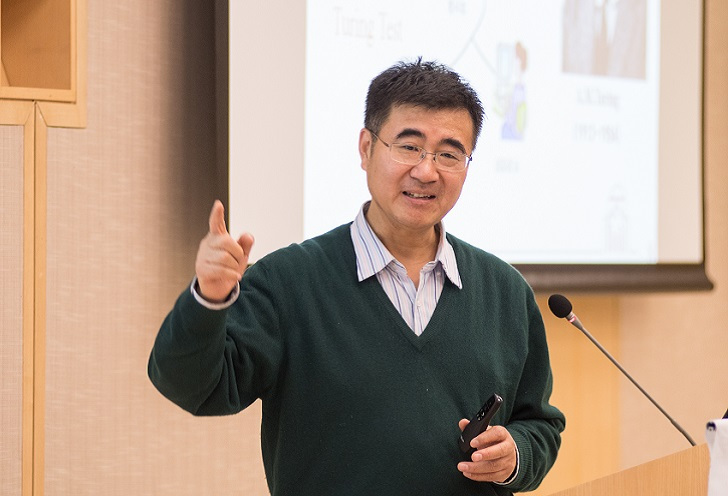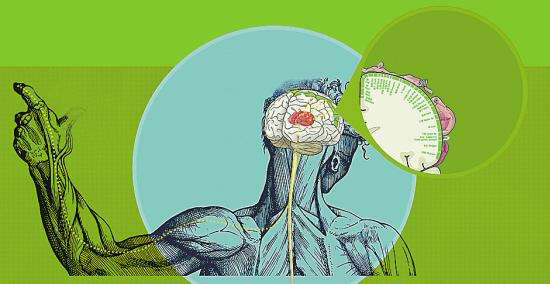Executive Education
sidenav header backgroundAI Technology and Industry Development

Intelligence is the inherent ability to learn and solve problems to achieve goals. In recent times, humankind have passed on intelligent abilities onto machines in varying degrees, thus allowing them to act with differing levels of human like rationale in a myriad of circumstances albeit in a limited, but developing and increasing applications. Numerous nations around the world have realized the vast potential of these intelligent machines in a range of problem solving applications and have continued to invest heavily on it. Nevertheless, rapid development of AI points towards its bright future and is already affecting our daily lives in various ways. This was the central message of Artificial Intelligence Technology and Industry Development of Green Growth and Sustainable Development Program. The seminar on AI is conducted by Professor Sun Fuchun from Tsinghua University on 16th November, 2018, held by Peking University Public Policy Forum International and the Institute of South-South Cooperation and Development at Peking University.
Professor Sun Fuchun is the Director of Academic Committee of Computer Science and Technology at Tsinghua University and also holds the position of Deputy Director of National Key Lab on Intelligent Technology and Systems. Interestingly, this session coincided with Peking University’s announcement regarding the soon to be established 68.35 hectare campus dedicated to the development of artificial intelligence and engineering in Beijing’s, Changping District.
The event began with a welcome note from Professor Fu Jun, the Academic Dean of the Institute of South-South Cooperation and Development. Professor Fu emphasized that Technology is one of most crucial elements for national development, and he invited the AI expert, Professor Sun Fuchun to take the floor. The seminar was quick to take forms of interesting discussions to healthy debates as the speaker took participants through the technicalities of AI. Professor Sun presented his understanding of AI into four parts – background and history, frontier theory, industrial development, and future thoughts. He balanced deliberation and emphasized on the positive applications of AI while also rightly pointing out the dangers of negative applications. He pointed out the vast potential the technology presents and its ability to improve lives while answering a wide range of questions from the participants.
However, while the application of AI towards the development of various key sectors is applicable, a critical question remains as to whether humans have taken the 1st step towards becoming enslaved by machines? After all, modern day literature is rampant with fears of job losses due to AI and at the extreme end an armagaeddon like scenario of war with robots. This has undoubtedly fuelled fear and prompted questioning the unknown.
Human intelligence is a blend of an age old accumulation of human instincts composed of human cognition and innovation. The ideological basis of AI is relatively new and has run parallel with the gradual development in computer technology from the development of the first electronic computer “ENIAC” in 1946, the conduct of the Turing Test in 1950 and towards the development of existing advanced super computers. In fact, the term Artificial Intelligence first formally appeared on a two month long seminar proposal attended by only 10 people on August 31, 1955 in the US. The terminology encompassed the science of manufacturing intelligent machines and in particular the development of intelligent computer programs that would enable computers to understand tasks related to human intelligence. Till this day, several questions pertaining to the possibility of designing artificial neural networks based on human brain architecture or to teach the computer to speak human language, learn concepts, form abstractions, improve performance generating plans, deal with random events and become creative still remain.
Currently, the focus of AI is on replacing human tasks and in the near term incorporates research on how to accomplish work requiring human intelligence. The paradigm and course of AI research gradually moved on from symbolism in the 1950’s to 1970’s to connectionism until the late 70’s, while fuzzy logic has given way to neural driven brain cognition from 2016 onwards. Industry applications of AI as a result are vast with the conception of National Artificial Intelligence Strategies by many nations. Advanced work on deep learning and others paradigms have given way to an explosion in industrial applications with examples such as introduction of smart chips, intelligent finance, intelligent social platforms, intelligent transportation, intelligent education, intelligent security and intelligent robotics.
The hierarchical learning theory of deep learning is highly adaptive to human visual perception mechanism, but is not devoid of weaknesses. In AI frontier theory, the weaknesses of deep learning come in the form of uninterpretable black boxes in end to end learning, high process costs of due to reliance on big data, poor generalization abilities, obstacles in combined applications and lack of active learning that prohibits automatic sublimation and emergence. However, as deep learning gives way to quantum computing and silicon cloud computing thus enabling network systems and a shift from computer memory to biological memory and trans modal learning inspired by multi-sensory channels and preference learning to simulate human judgment, the ultimate objective of AI in simulating the human thought process is rapidly taking shape.

- The comprehensive function of vision, hearing, touch, taste and smell
- The synesthesia is the way that AI comprehensively understands the world
- Image is the way for AI to understand the world in an initial way
- Language, as a system, is an abstraction of the real world and corresponds to the world image
AI is exploding across industries, including Smart Chip, Intelligent Finance, Intelligent Social, Intelligent Transportation, Intelligent Education and Intelligent Robot. The era of intelligent manufacturing is coming, and the robot industry is about to break out.
In conclusion, it is only a matter of time before AI explodes in various scenes. It will certainly move away from simple daily applications to more complex mediums. Moreover, the most important factor is the ethics of AI i.e. ensuring that AI will continue to absolutely adhere to human command. The future of AI lies on inspiration encompassed in responsibility. Human intelligence is a product of our civilization and complex social development. It is something AI will not fully replicate in the near future, but what is inevitable for academic institutions like the institute of South-South Cooperation and Development and its crop of future thought leaders is the fact that every country in the world has begun to understand that AI is a strategic commanding point for science and technology in the development of the future intelligent world and that whoever masters AI will become the master of future core technology.

(by Siddartha Mainali)







